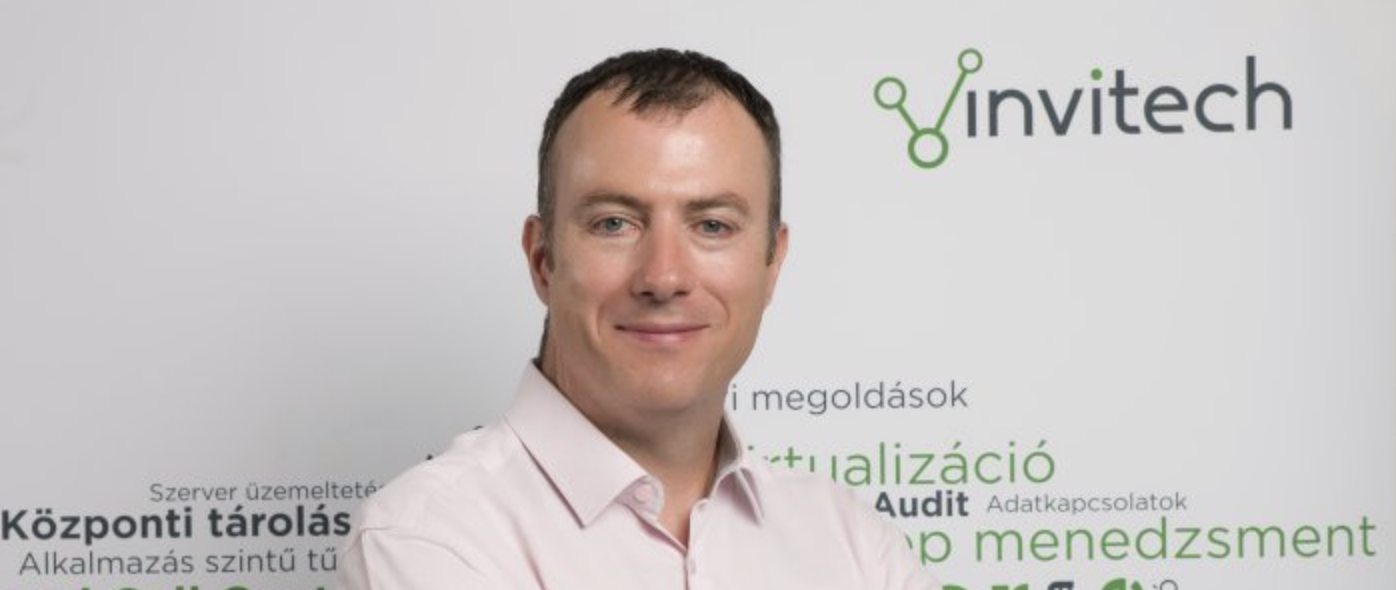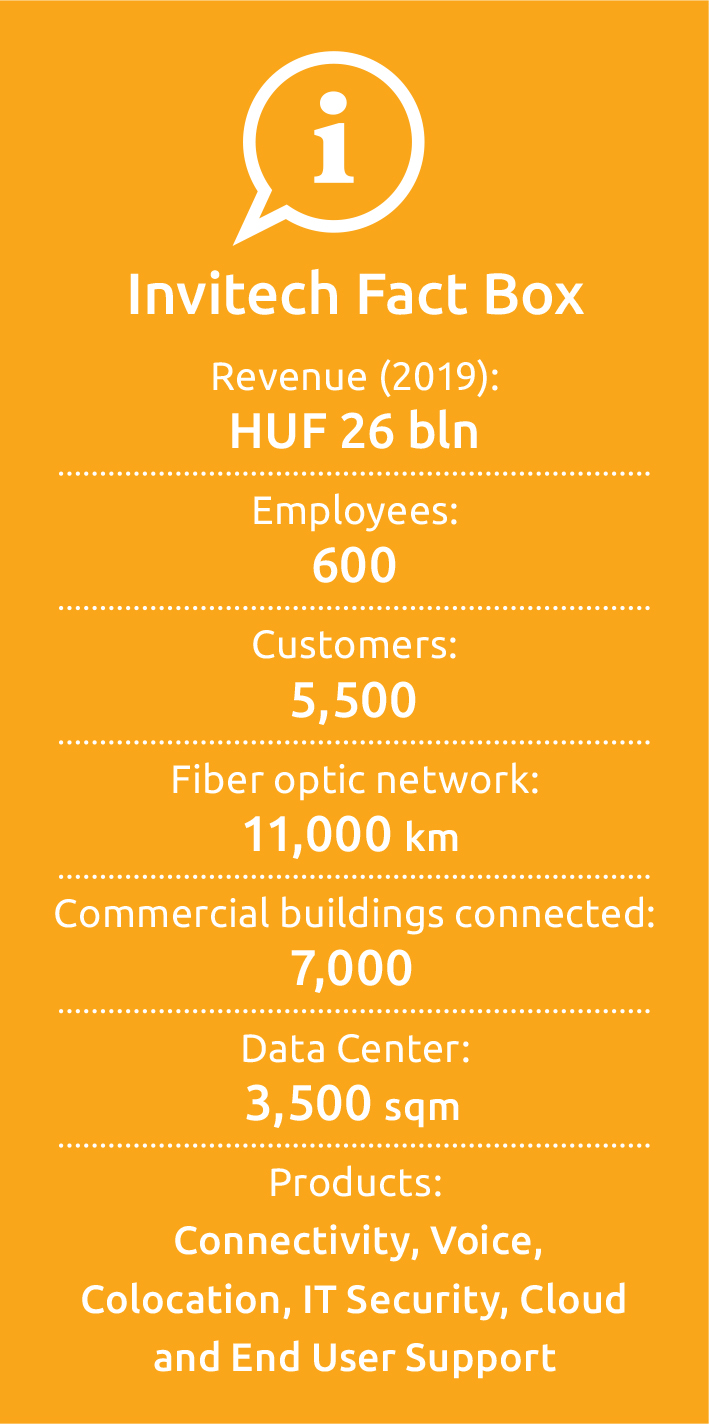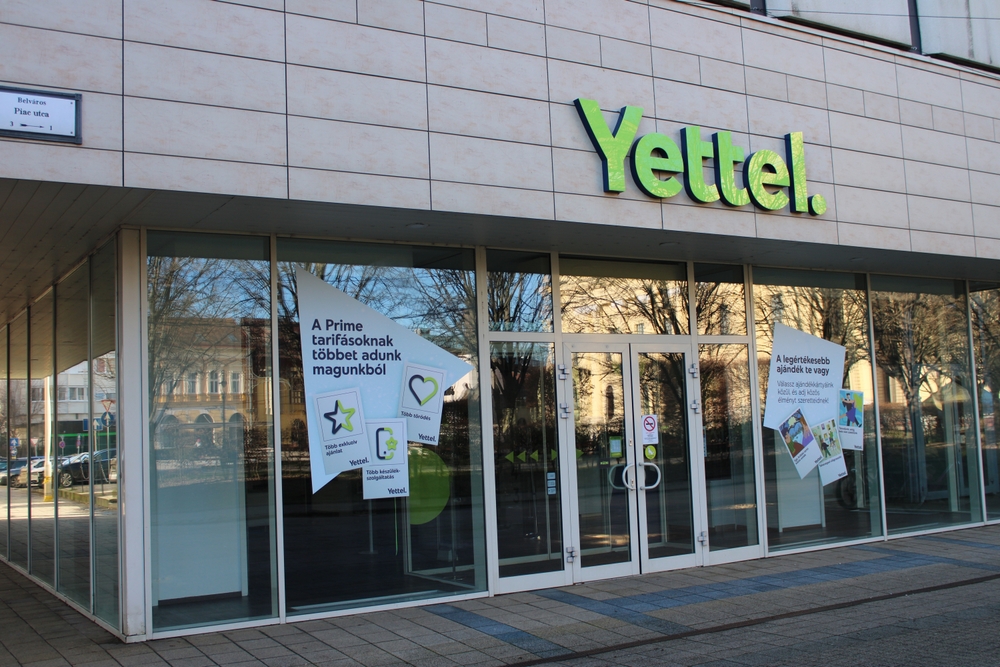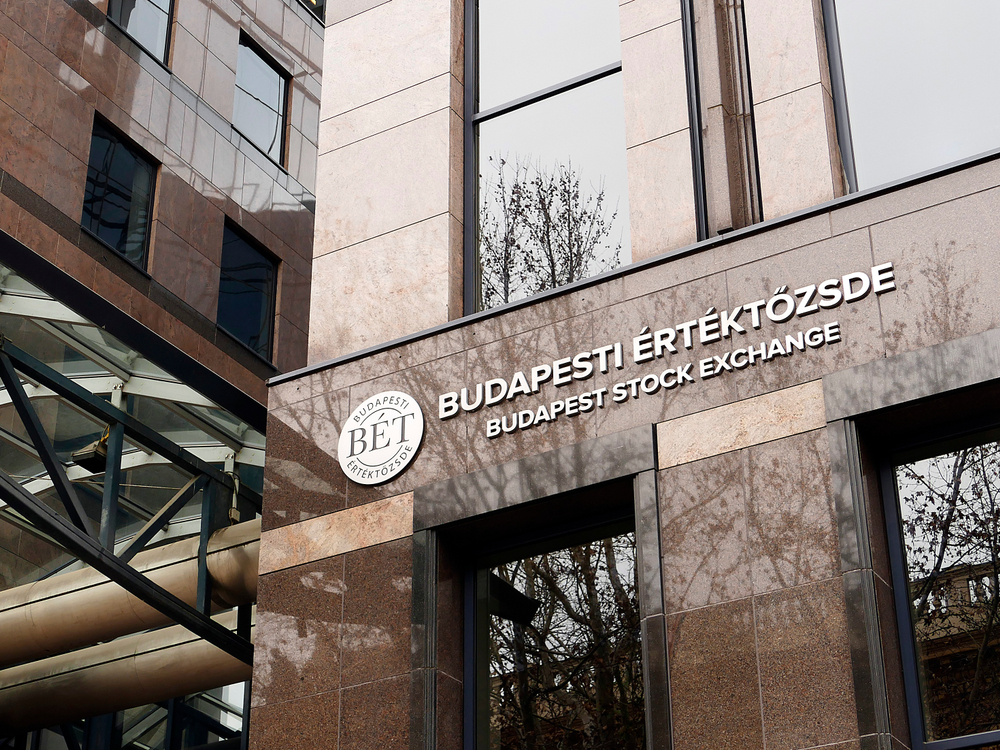Invitech Looking to Grow on Accelerating Digital Transformation

The COVID-19 pandemic saw a short-term spike in demand for additional bandwidth and security services, but in the long run it will likely have a much more meaningful impact on the adaptation of digital transformation, Gerald Grace, CEO of Invitech ICT Services Ltd., tells the Budapest Business Journal.
Gerald Grace
“We see digital transformation accelerating because of COVID. Our customers are integrating digital technology into more areas of their business. Their motivations include accelerating revenue growth, improved efficiency and security,” Grace says in an exclusive interview, conducted, appropriately enough for an ICT company, via a video conference call.
Invitech’s business is built around two pillars, an Infrastructure Business Unit, responsible for development and management of datacenter, fiber and radio communication assets and serving the so-called “carrier customers” (domestic and international service providers who use Invitech’s services to serve their own end users); and an Enterprise Services Business Unit, which serves corporate customers, adding technology and knowhow on top of owned infrastructure to deliver complex bundled ICT managed service solutions.
“We provide our customers the building blocks that enable their digital transformation; communications infrastructure, technology and skilled ICT staff. We are very positive about the future because we see many opportunities to help our customers in the coming months and years,” says Grace
He does not expect the number of clients to grow significantly (he says Invitech has relationships going back years with most), but he does think they will invest more. He points out that not all businesses have been as hard hit as tourism and hospitality; the automakers, for example, which initially closed down operations, have now largely bounced back. Many of the larger companies in Hungary are also well capitalized, the CEO argues, meaning they have the money to invest into their digital transformation.
“They are using this opportunity to move along faster, and that is where we see benefit from the lift they are going to give us in terms of the increased demand for managed telecommunication and ICT services,” Grace explains. Does that also point to a potential problem for Hungary, in seeing the digital divide between SMEs and larger players, already an area of concern, further widen?
“I think it potentially does, and the government is aware of this. They need to work, and I think they are, to make sure this gap does not widen. Large corporates in Hungary are frequently involved in export; they are competing against others who are further along the [digital transformation] journey than they are and obviously that is another reason why they are willing to move faster.”
The SMEs themselves are not a direct concern of Invitech, given its focus is on large and mid-size corporations. “Of our 5,500 customers, the largest 1,000 make up more than half of our business,” Grace, the company’s CFO before he took on the CEO’s role, explains. But there is an indirect impact: Hungary’s SMEs need to be able to serve the larger companies, and without the digital transformation of the former as well as the latter, they could lose competitiveness.
Smooth Switch
For Invitech, the switch to home office the pandemic forced was relatively smooth, as you might expect for an ICT company. Service engineers working in the field and the data center staff cannot work from home, but all other employees have had the option to remote work two-days a week for several years.
Grace thinks permanent home office is not a viable long-term solution for Invitech; roles involving creativity and problem solving suffer from the lack of direct social interaction. But trust between management and employees has been boosted, he says. “In Invitech, we have hit some of our best numbers in the last months and quarters.”
If the pandemic has proven one thing, though, it is that digital solutions work, whether that means enabling home office, or ushering in more efficient processes. And that has placed a focus on an area that was already rapidly rising up the agenda.
“Our whole industry has been showcased through this lens of COVID,” says Grace. “Customers have become more aware how dependent they are on technology.”
The need for acceleration is clearly there. Grace cites the Digital Economy and Society Index (DESI), published by the European Commission a few months ago, which places Hungary 21st out of 28-member states (at the time its data was collected, the United Kingdom was still considered part of the EU).
“Hungary is a follower, not a leader in this area, and you can see the results in the terms of this report. On a positive note, the government seems to be aware and is putting more focus and resources on the issue,” he says.
Significant Acceleration
“But it is evolving; Hungary is definitely moving in the right direction. In broadband connectivity, Hungary is actually quite high up, but on digitalization it is behind. I expect it to significantly accelerate in the next years.”
All of which means Grace is excited about the potential future for his company. “Invitech is ideally placed to capitalize on this whole opportunity. The reorganization into business units in 2019 helped improve focus, allowing us better understand and serve our customers’ needs so they can focus on their core business.”
That new structure followed the sale of the Invitel residential business unit to Digi; Grace insists the restructuring “wasn’t anything mind blowing”, but rather the implementation of an operational model used internationally by similar B2B focused telecom operators. Grace says the company is currently expanding and investing into both its fiber network and data centers.
As mentioned earlier, Grace was CFO before he took over the chief executive’s position. The big difference in the roles, he points out, is that however significant a role the finance position might be, the person filling it still has a boss.
“Now, the buck stops with me. I try not to be the cleverest guy in the company. Our decision-making process here is that we try to collect all the inputs from the various areas of the business, so it is not like I am deciding on my own with incomplete information. We adopt a collaborative approach to decision making where possible”.

SUPPORT THE BUDAPEST BUSINESS JOURNAL
Producing journalism that is worthy of the name is a costly business. For 27 years, the publishers, editors and reporters of the Budapest Business Journal have striven to bring you business news that works, information that you can trust, that is factual, accurate and presented without fear or favor.
Newspaper organizations across the globe have struggled to find a business model that allows them to continue to excel, without compromising their ability to perform. Most recently, some have experimented with the idea of involving their most important stakeholders, their readers.
We would like to offer that same opportunity to our readers. We would like to invite you to help us deliver the quality business journalism you require. Hit our Support the BBJ button and you can choose the how much and how often you send us your contributions.







